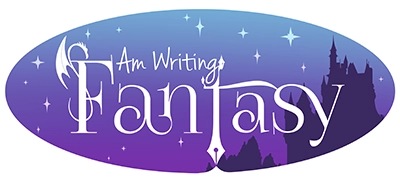Continuing in my exploration of what genre(s) to label my next release, I decided to tackle dark fantasy.
I like the sound of dark fantasy. It evokes the image of dark forests with ominous castles silhouetted in gloomy moonlight while a tragic plot line unfolds. That is what I imagine, but having read a few books described as ‘dark fantasy’ and describe Friends of my Enemy as the same, I can’t say any of them fit that idea.
So what is Dark Fantasy?
It turns out this is one of those genres that are a little fuzzy. Considering I’m discussing dark fantasy, I should probably say fuzzy with malicious growls and teeth.
Those who like to write definitions of genre describe dark fantasy as a subgenre and one that is horror based but comprised of a story not written with the overall purpose to scare. Otherwise, the defining characteristic is a gloomy atmosphere. Gee… that isn’t broad at all! However, it seems like those who like to label their writing as dark fantasy don’t actually follow this advice, thank goodness.
Joanna Penn wrote a great little article back in 2009 where she describes her view on dark fantasy and why she labels her writing in that genre. I love her post and practical attitude to why dark fantasy isn’t horror. She sums up her view as “a work is dark fantasy if it deals with any elements of fantasy and/or the paranormal in a way that studies the dark and frightening side of our nature, psychology and the weird, sublime and uncanny.”
This is a definition I understand and is why I’ve called Friends of my Enemy dark fantasy.
There needs to be a differentiation between a story that is ‘high fantasy’ or ‘epic fantasy’ in the classic sense where few of the heroes die, good wins, and decisions don’t fall into murky pits of unintended consequences and regret. That line, to me, is dark fantasy.
Good doesn’t always win. Heck, the heroes aren’t always good. In ‘adult’ fantasy the turmoil of decisions and the compromises of life mix with love and sex, betrayal and friendship, hard won victories that taste a little sour and defeats that buy reprieves. Sure, you could label the ‘happy ever after’ as young adult, but what if the language isn’t geared toward the young (and I don’t just mean curse words!) or scenes that are more mature than not? Fantasy, even epic fantasy, can cover these themes. A young adult label might not fit.
T.S. Bazelli has a very simple and easy definition covering dark fantasy:
- Fantasy that borrows elements of horror and often features dark/evil supernatural creatures. However, unlike horror, the focus of the story is not to scare the reader.
- Fantasy that is bleak, pessimistic, brutal, gritty, and graphic. The dark side of human nature is not off limits, and protagonists are not necessarily sympathetic.
That works for me and, happily, does still cover Friends of my Enemy! It is a pessimistic story line involving war, death, betrayal as well as love, trust, and hope. No character is untouched by loss or unaffected by doubts. It is a story that as a teenager, I would not have understood (not to say some wouldn’t), but as an adult I can appreciate. Life isn’t fair or guaranteed to have a happy ending. Sometimes the best you can hope for is saving something you love.
What is your definition of dark fantasy?










I completely agree with Penn’s view of dark fantasy and I use that to define my novel as dark fantasy. It’s about the explorations of the darker side of the psyche, humanity, society, and potentially life as a whole.
Penn’s definition certainly helps separate dark fantasy from horror, and goes so much farther than a ‘broody atmosphere!’ I can see why novels with ‘dark’ creatures like vampires and werewolves as well as lots of gore get the label dark fantasy, and maybe that works too. Maybe they are two separate sub genres?
Thanks for stopping by!